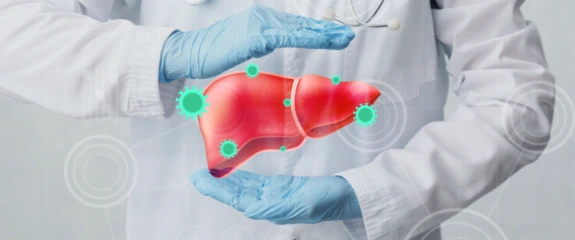
Autoimmune liver diseases occur when the body’s immune system attacks the liver, causing inflammation. If left untreated, the liver inflammation may eventually cause cirrhosis of the liver, which may lead to liver cancer and liver failure.
Autoimmune Hepatitis
Can impact both children and adults, potentially leading to cirrhosis and acute liver failure. Often, it shows no symptoms until significant liver damage occurs. When symptoms are present, they may include fatigue, nausea, abdominal discomfort, or joint pain.
Primary Biliary Cholangitis
PBC involves the destruction of bile ducts within the liver by the body's immune system, hindering bile excretion. It predominantly affects women more than men. PBC can be symptomless or associated with fatigue, itching, dry mouth, dry eyes, high cholesterol, or bone disease. It may also occur alongside other autoimmune disorders. Without treatment, PBC can progress to cirrhosis and liver failure.
Primary Sclerosing Cholangitis
PSC is marked by inflammation and scarring of the bile ducts, obstructing bile flow. This condition can be asymptomatic or present with itching or jaundice. PSC affects both children and adults and is often found in individuals with inflammatory bowel disease. Complications include liver, gallbladder, and bile duct cancers, biliary infections, and cirrhosis.

